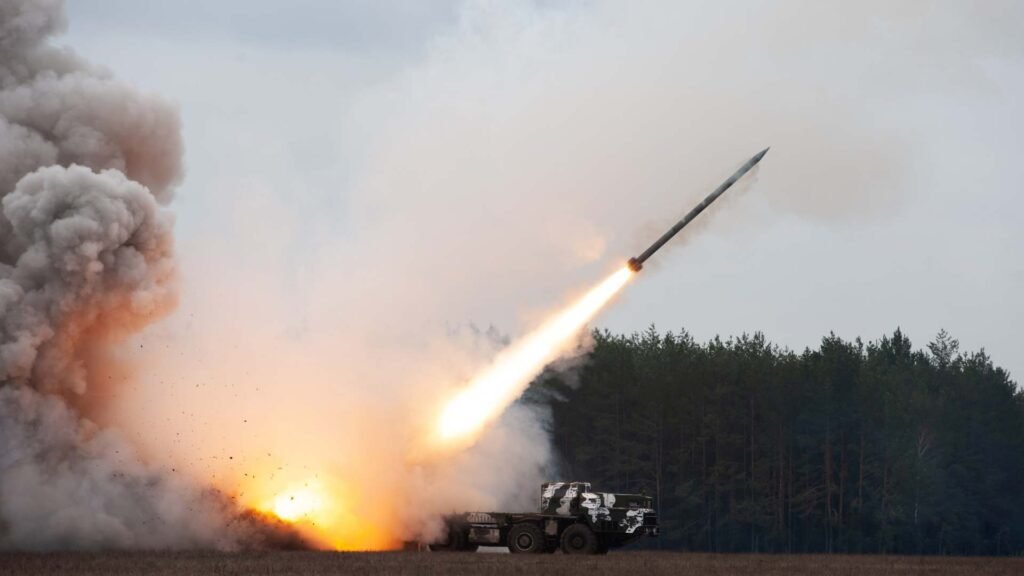In a significant geopolitical move, the US approves a $360 million arms sale to Taiwan. This sale, encompassing advanced drones and missiles, underscores the delicate balance of power in the Taiwan Strait and the broader Asia-Pacific region. As tensions between China and Taiwan persist, this development holds far-reaching implications for regional stability and international relations.
The Pentagon’s Defense Security Cooperation Agency announced the approval of this sale, which includes sophisticated weaponry aimed at bolstering Taiwan’s defense capabilities. This move is not just a commercial transaction but a strategic decision reflecting the US’s commitment to supporting Taiwan amidst increasing Chinese assertiveness.
Why the $360 million arms sale to Taiwan?

The U.S. State Department’s approval comes at a time when China has been increasing its military pressure on Taiwan. The sale includes Switchblade 300 anti-personnel and anti-armor loitering munitions and ALTIUS 600M-V drones, designed to detect and strike in real-time against enemy threats.
Types of Weaponry
Switchblade 300 Anti-Personnel Munitions: These are small, portable guided missiles capable of targeting both personnel and armored vehicles. Known for their precision and versatility, these munitions provide a strategic advantage in various combat scenarios.
ALTIUS 600M-V Drones: These drones are designed for long-range surveillance and strike missions. Their ability to loiter over target areas and deliver precise attacks makes them a critical asset in modern warfare.
Legal Obligations and Regional Stability
The United States has consistently demonstrated its commitment to supporting Taiwan’s self-defense capabilities. With the recent approval by the State Department, the U.S. sends a strong message affirming Taiwan’s sovereignty and security. This action is in line with the Taiwan Relations Act of 1979, which legally obliges the U.S. to equip Taiwan with necessary defense articles and services. Although there are no formal diplomatic ties, this legislation ensures that Taiwan is not left defenseless.
The recent arms sale, valued at $360 million, is a direct fulfillment of this legal mandate and underscores the U.S.’s steadfast support for Taiwan’s security needs. The Pentagon’s Defense Security Cooperation Agency has emphasized that this sale is expected to significantly contribute to political stability, military balance, and economic progress within the region.
China’s Response and Military Maneuvers
China regards Taiwan as an integral part of its territory and has consistently made its opposition to U.S. arms sales to Taiwan known. In recent times, China has escalated its military activities around the island, conducting large-scale war games as a form of intimidation and a display of dissatisfaction with foreign support for Taiwan’s defense capabilities.
The inauguration of President Lai Ching-te has heightened these tensions, with China’s strategic intentions becoming increasingly evident: to reinforce its claim over Taiwan and discourage any steps toward formal independence. By increasing military pressure, China seeks to compel Taiwan into compliance and dissuade other countries from backing Taiwan. In this context, the U.S. arms sale acts as a deterrent to China’s assertive tactics.
Implications for Taiwan
The recent arms sale is set to significantly bolster Taiwan’s defense capabilities, offering a vital enhancement in the face of mounting Chinese military threats. The acquisition of Switchblade 300 munitions and ALTIUS 600M-V drones will empower Taiwan with advanced means to swiftly detect, engage, and neutralize potential threats, thereby maintaining a robust deterrent against possible Chinese aggression.
Moreover, this arms sale transcends the realm of military strength. It plays a pivotal role in safeguarding Taiwan’s political stability by reinforcing its defense infrastructure. This fortification enables Taiwan to withstand external pressures and uphold its democratic governance, which is crucial for the island itself and for the peace and security of the entire region.
Taiwan’s Reaction and Delayed Deliveries
Taiwan’s defense ministry has expressed gratitude for the U.S.’s efforts to expedite arms sales. However, there have been complaints about delayed deliveries in the past, which this sale could potentially mitigate.
Regional Impact
The implications of the arms sale to Taiwan are far-reaching, extending beyond its shores to impact the Asia-Pacific region’s geopolitical and economic landscape. This strategic move plays a crucial role in preserving the balance of power within the Taiwan Strait, which is essential for deterring any unilateral actions by China that could lead to regional instability. By bolstering Taiwan’s defenses, the United States contributes to a status quo where no single nation can assert dominance over the Asia-Pacific region.
Furthermore, Taiwan’s stability is integral to the region’s economic prosperity. As a key player in global supply chains, especially in the critical semiconductor industry, Taiwan’s security is synonymous with economic continuity and advancement. The arms sale, therefore, strengthens Taiwan’s military position and underpins the economic stability and ongoing progress of the broader region.
The Path to Peace
Peace and stability in the Taiwan Strait are delicate matters that require goodwill from all parties involved. The Taiwanese ministry hopes for a cessation of oppressive military operations by China’s People’s Liberation Army to foster regional stability.
This arms sale is a complex issue with implications for international relations, defense strategies, and regional peace efforts. It remains to be seen how this decision will unfold in the geopolitical landscape of East Asia.
